Itchy scalp is the body’s reaction to inflammation of the skin caused by internal or external irritants. A person, experiencing it, begins to intensively comb his skin. As a result, she is injured, abrasions and sores appear. They become the causes of violation of the integrity of the stratum corneum of the epidermis. In such a situation, a bacterial infection becomes possible. This aggravates the situation and significantly reduces the quality of life. In order to prevent the development of unwanted complications, you need to know what triggers can cause severe headaches and try to eliminate them whenever possible.
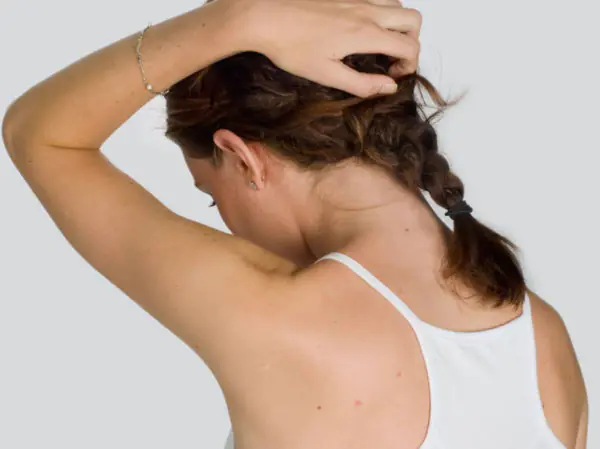
Physical causes of itching
You won’t be able to ignore the itching; you can get rid of it by eliminating the cause of its occurrence. There may be several of them. Some of them are associated with the development of systemic diseases, while other factors are associated with improper care of the scalp.
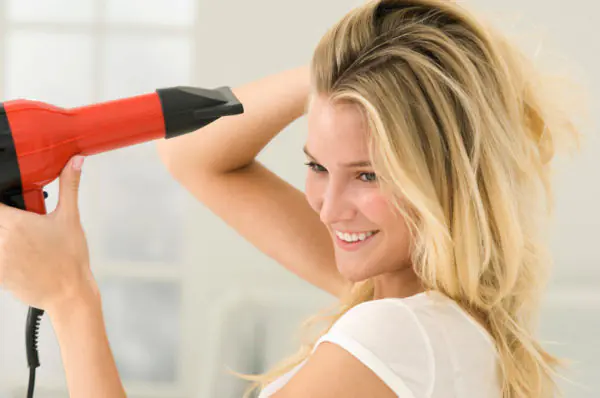
Let us indicate the most common physiological reasons:
- Excessive muscle tension. It occurs as a result of prolonged tension in the muscles of the neck and shoulders. It interferes with blood circulation and causes severe pain that runs through the neck, back of the head and forehead. When it passes, the person experiences mild itching at the site of its localization. Based on the nature of the pain, an experienced doctor will be able to determine the cause of the ailment and advise how to eliminate the described symptoms.
- Dry scalp. Occurs after thermal exposure (blow-drying, ironing). Dryness can be provoked by exhaustion of the body, frequent washing of hair with shampoos, and old age. Insufficient sebum leads to thinning hair, making it thin and brittle. The body, reacting to dry skin, stimulates the sebaceous glands. Your head quickly becomes dirty. Many of us, misunderstanding the situation, begin to actively use showers and shampoos for oily hair, so the skin condition worsens and the itching becomes more pronounced.
- Poor nutrition. One of the unfavorable factors that can trigger the appearance of dandruff on the head can be poor nutrition. The presence of large amounts of sugar and carbohydrates in the daily diet leads to increased insulin production. This hormone stimulates an increase in fat deposits and increased activity of the sweat glands. The absorption of simple carbohydrates leads to the formation of a favorable environment for the proliferation of pathogenic microflora. This way, yeast fungi, which are part of the skin microflora, are activated. As a result, peeling, itching, and inflammation appear.

Another cause of scalp problems is a lack of fatty acids found in animal fats and vegetable oils. Any diet involves limiting their consumption, which means there is a risk of developing the described condition. Drying of the epidermis of the scalp can also occur due to a deficiency of vitamins A, B2, B6. Normalizing the diet quickly eliminates the ailment that arises.
Stress as a source of itchy scalp
The head can itch not only due to the development of skin pathologies or eating disorders, but also due to neurological disorders. Mental or physical stress, psychological pressure, emotional stress, panic attacks stimulate the production of adrenaline. It redistributes blood flow, enhances nutrition of skeletal muscles, blood flow to the skin noticeably deteriorates, which deprives it of essential nutrients. Closure of small capillaries promotes the accumulation of toxins. They cause a reaction similar to an allergy, resulting in debilitating itching. To remove adrenaline from the body, good physical activity is necessary. If there are none, the condition will constantly worsen.
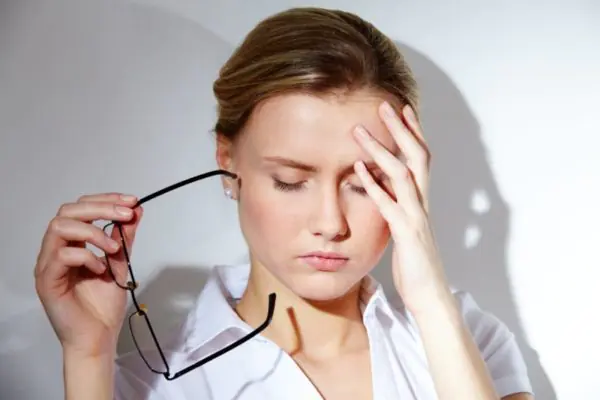
Diseases accompanied by itching of the scalp
The appearance of an itchy head may be associated with the development of certain pathologies. Then, along with it, other clinical symptoms should be present. These are the ones you need to pay attention to when determining the cause of the ailment. The following table provides a complete description of the most common triggers.
| Name of the disease | Pathogen | Pathogenesis | Clinical manifestations |
| Seborrhea | Inflammation of the upper layers of the skin caused by increased secretion of the sebaceous glands | Thickening of the epidermis, the appearance of whitish scales, red sores, pronounced skin itching. The dry type of seborrhea is characterized by the formation of a large amount of dandruff; with oily seborrhea, the hair becomes shiny, the head emits an unpleasant odor, and the dandruff flakes are impregnated with sebum and have a yellow color. | |
| Seborrheic dermatitis | Yeast-like lipophilic fungi Pityrosporum ovale | The proliferation of a pathogenic microorganism causes the development of an inflammatory response. It has a chronic form | First, white dandruff appears, it causes severe itching, then seborrheic plaques form on the scalp, gradually spreading and covering the entire scalp |
| Pediculosis | Head louse | It gets on the head during close contact with an infected person. A louse is a blood-sucking insect. Before biting, she injects salivary secretion into the skin. It stops blood clotting. Itching is an allergic reaction to the effects of secretions and waste products of parasites. It gets worse as the number of lice increases | Exhausting itching, worse during the day. Most often it appears where lice “like” to be (the back of the head, temples). If you take a magnifying glass and examine these areas, you can see bite marks (red dots). About a week after infection, nits - insect eggs - can be found on the hair. It’s also not difficult to find lice on your head. |
| Psoriasis (vulgar, guttate, pustular) | Unclear reasons | Complex developmental mechanisms associated with autoimmune processes | Plaques or flaky plates appear on different parts of the skin (including on the head). The skin inside them is inflamed and very itchy, after which pustules with serous contents can form on top of the plaques, after their opening crusts form |
| Demodicosis | Microscopic mites of the genus Demodex | The mite gets into the follicle (hair follicle) or into the duct of the sebaceous glands. | Different areas of the skin are affected, including those on which hair grows. Mite parasitism causes severe itching and hair loss |
| Dermatophytoses | Zooanthroponotic fungi (favus, trichophytosis, microsporia) | Infection occurs through direct and indirect contact with sick animals. Pathogens, when they reach the surface of the skin, release toxins and enzymes, which cause the development of superficial inflammation and loosening of the stratum corneum. Fungi penetrate the hair follicles, so their life process causes hair loss | The affected areas secrete serous pus; when the exudate dries, crusts form in its place. This process is a favorable environment for the development of pathogenic bacteria, therefore dermatophytoses are often accompanied by staphylococcal and streptococcal infections. Hairless areas gradually form on the head |
Itching on the head can be symptoms of diabetes, multiple sclerosis, diseases of the liver, kidneys, pancreas and gastrointestinal tract. Therefore, it becomes clear why the causes and treatment are so interconnected: therapy for itching without eliminating the provocateur factor is useless.
Pathologies of the cervical spine and itching
Any pathology of the cervical spine leads to impaired blood circulation in the nerve formations. This phenomenon can cause a variety of symptoms. One of them is itching of the scalp.
How to deal with itching at home
From all of the above, it becomes clear that itching of the scalp is a consequence or a symptom; you can get rid of it by eliminating the cause. What can be done for this at home?
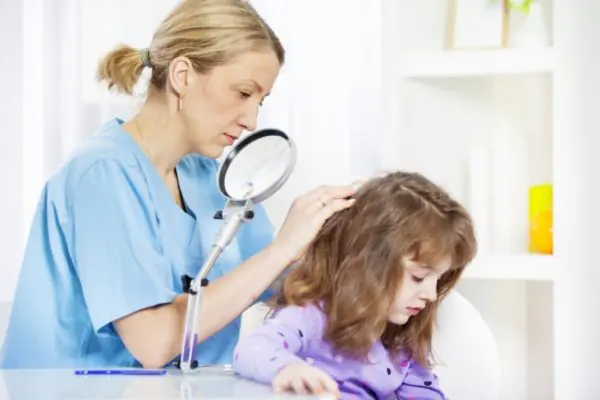
First you need to exclude the possibility of developing pediculosis. If lice infest your head, it is not difficult to detect them. To do this, you need to rub your hair with any vegetable oil, spread a white rag in front of you, bow your head over it and comb each curl, armed with a fine-toothed comb. This procedure allows you to get rid of adult individuals. You can recognize a louse by the structural features of the parasite and its behavior.
The insect has an elongated body, pointed on both sides. Unlike fleas, it does not jump or fly, but only runs quickly. If there are lice, then there must be nits on the hair. To detect them, you need to pass a strand of curls taken from the temples or at the back of the head through your fingertips. This test will detect small hard balls stuck to the hair. If you press them with your nails, you will hear a characteristic crunch. You need to get rid of lice using special means. Pharmacies sell creams and lotions, solutions and sprays (“Para Plus”, “Pedikulen”, Nittifor”). They are effective in the fight against sexually mature individuals; nits must be combed out manually.
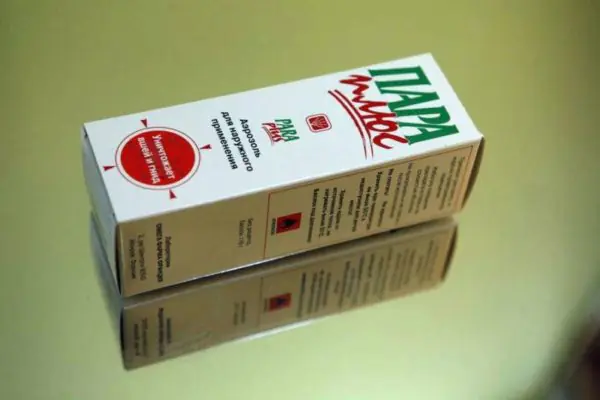
Treatment of seborrhea is a long process. In order to get rid of it, you need to learn to eat right, avoid stress, and follow a sleep and rest schedule. In addition, it is important to devote more time to keeping your skin clean.
You need to get rid of dryness with the help of nourishing masks that have a softening effect. Here you can actively use traditional medicine recipes. There are a large number of them, the right choice of recipes will make it easy to eliminate problems that can cause the development of itching.
Traditional medicine recipes
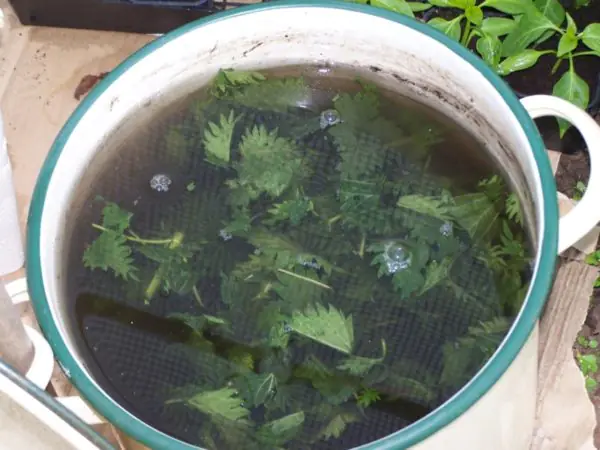
There are several ways to relieve itching using alternative medicine:
- To normalize the functioning of the sebaceous glands, decoctions of oak bark, chamomile and nettle extracts are suitable.
- Itching caused by hair coloring can be relieved by rubbing onion or garlic juice. They contain a large amount of sulfur, which effectively fights dandruff.
- If you add vegetable oil and lemon juice to onion or garlic pulp, you will get an excellent product for softening the skin. An apple mask has the same effect. It is useful to apply apple pulp to the entire surface of the scalp twice a week and leave it there for about thirty minutes, and then rinse with warm water.
- Dandelion lotion helps reduce the intensity of itching. To prepare it, you need to take a handful of flowers, place it in a glass bowl, pour in 50 ml of vodka and the juice of one lemon. Then add a spoonful of liquid honey and leave the product for two weeks. After the expiration date, the tincture should be filtered and used to rub into the skin half an hour before bathing. Afterwards, you need to wash your hair with regular shampoo.
- A decoction of onion peels has approximately the same effect. It is advisable to use it in the process of rinsing hair after washing it with shampoo. Two or three procedures should help get rid of itching caused by physiological reasons.
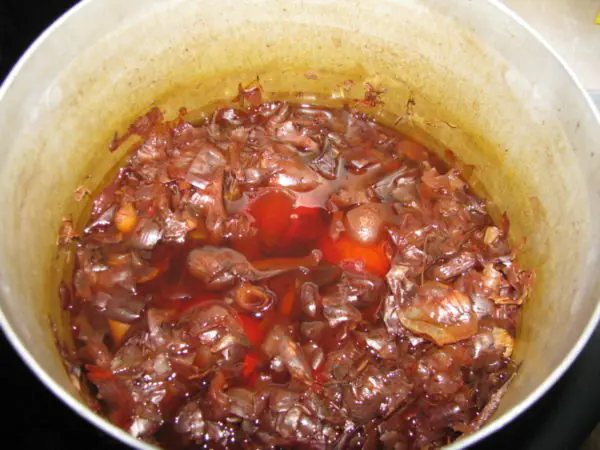
If traditional medicine is ineffective, you should seek medical help.
Pharmacy remedies for itching
The prescription of pharmaceuticals is made after the diagnosis is determined. It is formulated based on several laboratory tests. If you have problems with scalp itching, you should contact a dermatologist or trichologist, mycologist or dermatocosmetologist. Sometimes it becomes necessary to consult an endocrinologist, neurologist or allergist.
Diagnostics is carried out in several stages:
- At the first stage, the specialist performs a visual examination of the scalp, collects anamnesis, and studies the characteristics of itching (duration, intensity).
- The second stage involves scraping the scalp. It is sent for microscopic examination and bacteriological culture. The first method allows you to confirm or refute the presence of a scabies mite, the second helps to determine the causative agent of a fungal or bacterial infection.
- If psoriasis is suspected, a histological examination of a piece of skin extracted from the affected area is performed.
- If mycoses and dermatoses are suspected, the skin is examined using a Woody fluorescent lamp.
- If seborrheic dermatitis is suspected, dermatoscopy and spectral examination of hair for the composition of trace elements are performed.
- Each patient must take a blood test to study hormonal levels.
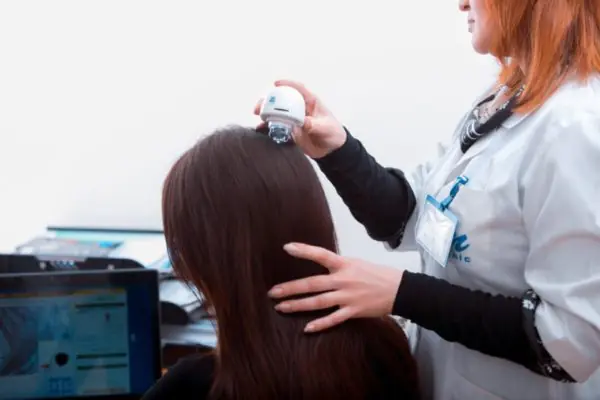
The following table shows how varied drug therapy can be aimed at eliminating scalp itching.
| Name of the disease | Which doctor treats | Drug regimen |
| Scabies | Dermatologist, parasitologist | Antiscabiotic drugs: |
- ointment or emulsion “Benzyl benzoate”;
- Permethrin spray, cream or lotion;
- "Spregal";
- 33% sulfur ointment
External treatment with ointment "Metronidazole", "Dexodem-Phyto".
Physiotherapy: electrophoresis and microdermablasion, which removes the top layer of skin in which parasites are stripped
Dry skin Trichologist Saturation of the body with vitamins E, A, B, PP, use of balms and masks with a moisturizing effect Fungal diseases Dermatologist, trichologist Comprehensive scheme:- medicated shampoo with ketoconazole, tar or climbazole (twice a week);
- tea tree oil for skin treatment;
- vitamins inside; antihistamine tablets (Suprastin, Tavegil);
- sedatives (valerian, motherwort, lemon balm);
- probiotics;
- hormonal ointments (“Miconazole”, “Clotrimazole”);
- antifungal agents for oral administration (Fluconazole, Terbinafil)
If at an appointment with a doctor, after carrying out the necessary diagnostic measures, it was found that the cause of the itching of the head is the development of a systemic disease, the main emphasis in therapy is on eliminating the primary factor. Treatment of itching alone with antihistamines and sedatives does not produce results. It disappears temporarily and then returns with the same strength.

Itching and many accompanying troubles can be caused by a huge amount reasons. To accurately establish the source, it is best, of course, to visit a doctor, but this is where the problem arises - which specialist should I make an appointment with?! Or go to everyone in a row - an inspection is never superfluous! Let's figure out what the reasons are and which doctor should be visited.
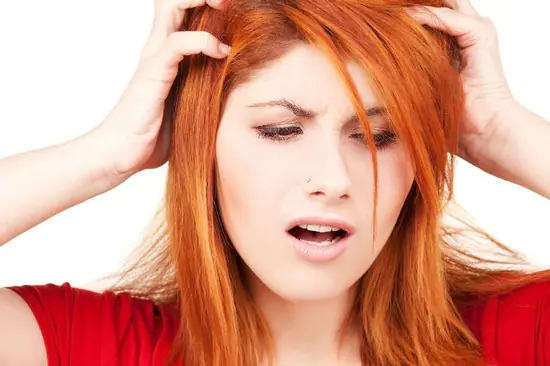
For severe, persistent itching of the scalp Necessarily consult a doctor! Don't delay! The sooner you contact, the less consequences there will be!
Probable Causes
- Seborrhea, dandruff
Improper functioning of the sebaceous glands leads to major hair problems. One of the very unpleasant ones is dandruff (seborrhea), accompanied by unbearable itching and damage to the skin. And also shoulders and backs covered with white scales. It is these scales that are the source of itching; they are the ones that irritate the skin.
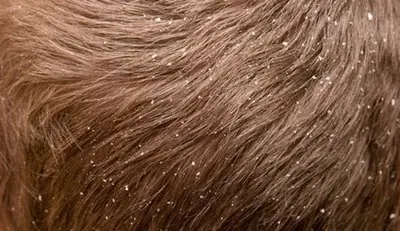
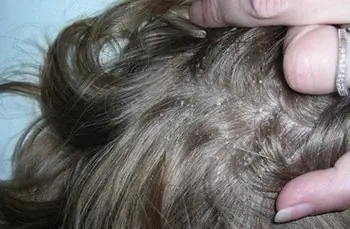
In mild cases, dandruff can be easily treated on its own at home. It is better to treat more complex cases together with a trichologist, and approach this comprehensively and tune in to the duration of the process.
- Dry scalp
Again, improper functioning of the sebaceous glands and some other reasons lead to dry hair and scalp. The glands are actively trying to relieve dryness and protect weakened skin from the negative effects of the environment and thereby cover the entire surface with a layer of sebum. The hair begins to get dirty quickly, a lot of dirt sticks, bacteria and microbes develop strongly. You may mistakenly suspect that you have oily skin and oily hair type. Frequently washing your hair dries out your skin even more, making cracks and scratches itchy. After washing, everything becomes fluffy and electrified, hairs split and break off.
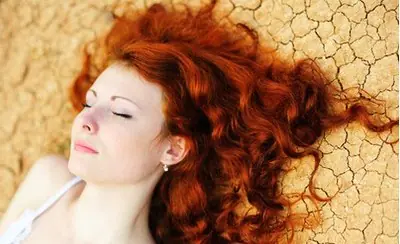
Moisturizing masks, replenishing vitamins and microelements in the body, proper and healthy nutrition, following the rules of washing and drying, and protecting curls from the sun, wind, and frost can cope well with this problem.
- Fungal infection
These are serious diseases that require mandatory treatment. In addition to constant frequency, plaques (lichen) also appear on the skin, which look very repulsive. It is best to undergo a course of treatment in a medical facility under the supervision of a dermatologist, but if for some reason this is not possible, then try to relieve symptoms with tea tree oil wraps and special antifungal shampoos.
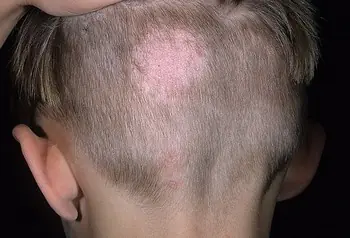
- Parasites (lice, mites...)
Another very serious lesion, which also requires mandatory and immediate treatment (you must visit a dermatologist). Most often these are lice. A louse can jump over anywhere, especially where there are large crowds of people or large groups of employees. You can detect it under a magnifying glass by carefully examining the scalp (it’s better if a doctor does this). It is not possible to detect a tick-borne infection at home.
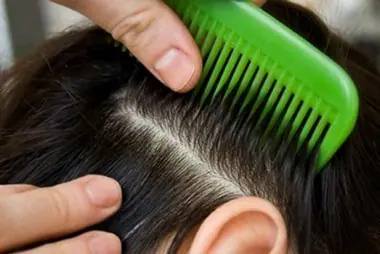
Inspection for lice
Treatment for head lice is quite simple and does not take long. Special shampoos and some folk remedies will do the trick.
Perhaps one of the most common sources of skin itching, and all because recently an incredible number of new allergic reactions have appeared. The main ones are reactions to food. Also, many today are faced with allergies to hair care products (shampoos, balms, masks, styling products...) and decorative cosmetics. It is usually accompanied by rashes, redness, itching, and sometimes swelling.
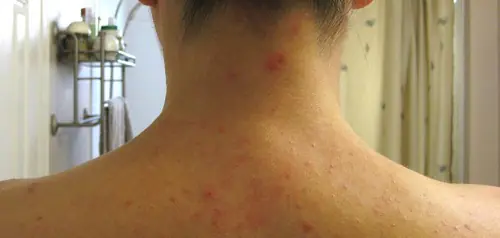
Allergies can also occur when changing your usual hair care product. If returning to the old remedy does not solve the allergy problem, then you should contact a trichologist.
The solution to the problem is to find the allergen and, of course, eliminate it. The best place to do this is at an allergist's office.
- Allergy to paint
This also happens quite often, especially if the artist used low-quality paint or paint containing ammonia or hydrogen peroxide. There is only one way out: be sure to control what exactly the artist paints you with and choose ammonia-free paints or tinted shampoos for coloring. In addition, it is advisable to test for allergic reactions before the procedures.
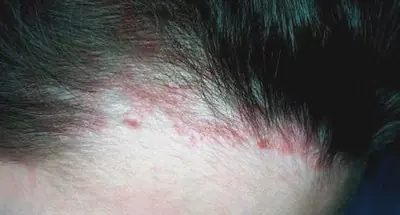
- Allergy to powders
Washing powders and fabric softeners contain many different chemical components. Any of them can cause skin irritation, and, accordingly, allergies and itching.
The source of many different problems with the body is nervous tension, stress, depression, and neuroses. Hair and scalp are also affected. Stress can cause a change in hair type, disruption of the sebaceous glands, spasms of blood vessels, and problems with blood microcirculation. Against this background, metabolism suffers greatly and skin irritation occurs.
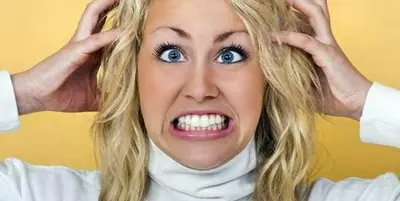
To relieve this irritation, first of all, you need to eliminate stressful situations and calm your nerves, take a course of sedatives (prescribed by a neurologist upon treatment), and massage the scalp and cervical spine.
- Poor nutrition
Excessive consumption of sweets, spicy foods, coffee, smoked foods, canned food, etc. These are not very healthy foods and overeating them inevitably affects the skin: dermatitis, eczema, acne, rashes. These skin manifestations are always accompanied by itching and severe scratching of the rash. Coping with this problem is quite simple: eliminate “junk” foods for a while, drink more plain water, consume lean foods with a small amount of spices. Itching and rashes will go away quickly!
- Wrong headdress
Tight and synthetic headgear often causes discomfort on the head. The debate makes the situation even worse. You want to scratch your head all at once and as quickly as possible. There is only one way out - to immediately change the headdress to a more pleasant one, made of natural material, and in addition, different hats should be worn at a certain temperature (hair care in winter) and try not to overheat the scalp, as well as not to overcool.
In addition to these main reasons, there are also secondary ones. These include:
- disturbances in blood circulation;
- gastrointestinal diseases;
- passive lifestyle;
- frequent use of hair dryers and curling irons. ;
- overvoltage .
Of course, there are many reasons and it would take a very long time to describe each one. If your reason is not among the main ones, then it’s worth looking with a specialist for more rare ones. But it is imperative to find the reason why the scalp itches, since this can be a symptom of a serious illness, and going to the hairdresser becomes problematic.
When, at first glance, your head begins to itch for no reason, there is cause for concern. Often the worst comes to mind, but the reasons may be completely harmless. Or, conversely, itching can be a symptom of serious diseases. Why does my head itch and what can I do about it? Everyone should know the answers to these questions in order to react in time and help themselves.
Reasons why your head itches if there are no lice
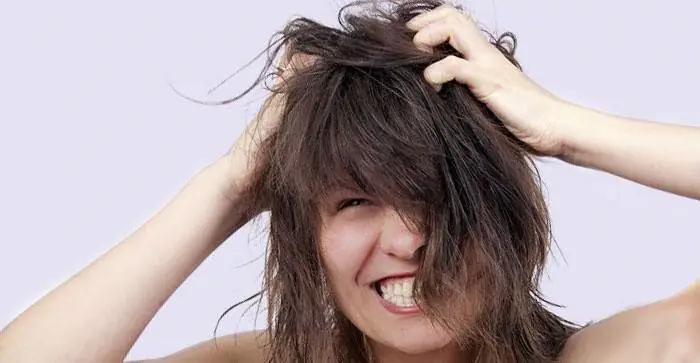
The first thing most people associate with an itchy scalp is lice. However, a person who takes care of himself and follows the rules of hygiene has a very low probability of becoming infected with these parasites. By examining yourself or asking a loved one about it, it is easy to exclude the presence of lice; their presence is detected with the naked eye or with the help of a magnifying glass. And if you are convinced that there are no parasites, it is worth considering other possible causes of itching.
Why is my scalp dry and itchy after washing?
Itching that occurs after washing your hair indicates that the composition of the shampoo is not suitable for the person. This may be due to:
- That you are allergic to the ingredients of the shampoo, conditioner or hair rinse. This reaction often occurs if the shampoo contains sodium lauryl sulfate or sodium laureth sulfate. If this is the case, you should switch to shampoos with a more gentle composition.
- That you are allergic to the softener or powder used to wash towels. This factor is possible if the appearance of itching coincides with testing of new products that are unfamiliar to a person. Often returning to already proven remedies leads to the disappearance of unpleasant sensations.
- That the wrong type of shampoo was chosen. With increased dryness of the scalp, fat secretion is excessive, but has a different composition. Often in these cases, people mistakenly choose shampoo for oily hair to degrease the roots, but such products dry out the skin even more, worsening the situation. Itching, burning, and brittle hair occur.
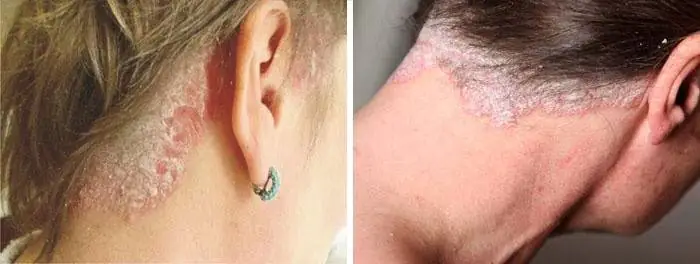
With the appearance of irritation after hair coloring
After hair extensions or coloring, you may experience unpleasant burning and itching sensations. If your scalp is itchy in this case:
- The coloring product is not suitable for a person due to an allergy to the ingredients that are included in its composition. You should abandon it, switch to products from another manufacturer, and after dyeing your head, lubricate your head with any soothing, anti-inflammatory agent (lotion, balm or decoction based on chamomile, calendula, string).
- Hair dye contains too aggressive components that excessively dry the scalp, cause allergic reactions, and have a negative effect on the epidermis. Such irritation and itching often occur after henna. In these cases, women are advised to switch to more gentle products, such as tinting shampoos or dyes with low ammonia content.
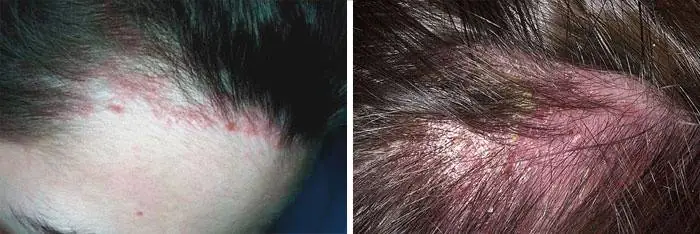
Itchy head and hair loss
If your scalp itches and hair falls out, the reason lies in one of the following problems:
- Vitamin deficiency often causes not only itching, but also hair loss, which results in weakening of the hair follicles and fragility.
- The appearance of all kinds of fungal diseases and microorganisms in a child or adult (for example, ringworm) leads to the appearance of flaking on the scalp, their loss and severe itching, which is often impossible to tolerate. You cannot treat this problem yourself; it is necessary to find out the nature of the disease, because it may be part of a larger, complex disease that reduces a person's overall immunity.
- Violation of the proper functioning of internal organs leads to a deterioration in the flow of all processes in the body, and this affects the quality of the hair, causes fragility, oiliness of the hair, and, as a result, is characterized by hair loss and itchy scalp.
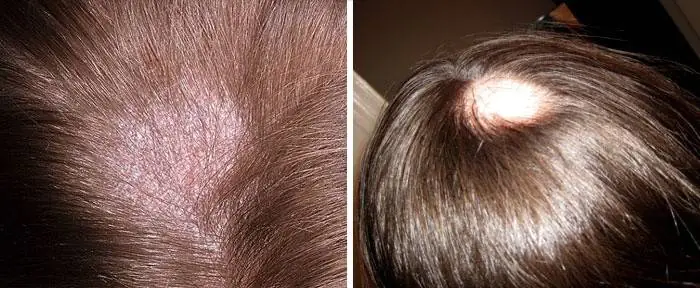
With the appearance of flaking and dandruff
- Severe itching with accompanying dandruff and increased oiliness may indicate the presence of a disease such as seborrhea of the scalp (increased sebum production, flaking) or seborrheic dermatitis (flaking and red spots on the skin). These are serious diseases that are complex in nature. They are difficult to cure at home, so if you suspect seborrhea, you should definitely contact a dermatologist or trichologist.
- Stress, nervous exhaustion, poor nutrition, weakened immunity, and hormonal imbalances in an adult often act as catalysts for the development of seborrhea. But these factors themselves can cause itching, dandruff, and mild to moderate hair loss. Even from water of increased hardness, from sweets consumed in excessive quantities, a similar problem can arise. In this case, the head itches all the time, the appearance of discomfort and itching is difficult to correlate with a specific event (for example, washing your hair, coloring).
- The presence of dandruff, which does not accompany seborrhea, but is an independent disorder, leads to the appearance of mild and moderate itching. The reasons for the peeling of epidermal scales often lie in genetic predisposition, general health problems (for example, metabolic disorders) or are a consequence of the negative impact of external factors (for example, allergies to hair care products). Dandruff, like other diseases, needs to be treated.
- Psoriasis is a severe autoimmune skin disease that is catalyzed by severe stress, unbalanced nutrition, and impaired immunity. It looks like flaky areas with a tendency to increase in area. When lesions appear on the scalp, severe itching and discomfort will be felt.
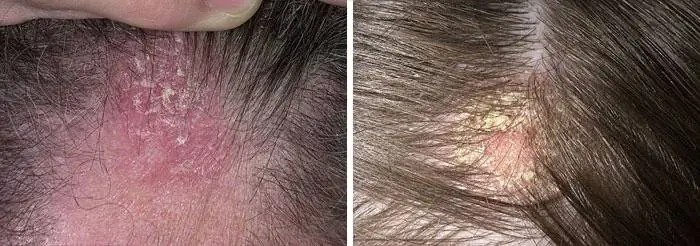
What to do and how to treat if your scalp itches
If you experience discomfort, itching of the head, excessive and atypical greasiness of the epidermis, lesions on the skin, pimples, you should definitely consult a dermatologist or trichologist. They will conduct all the necessary tests, determine the cause of the symptoms, the source of the problem and prescribe the appropriate treatment. However, in some cases, when it is not possible to urgently go to the hospital, and the itching is very intense, it is worth using remedies that will help improve your well-being.
Shampoos and masks for dandruff and itching

The simplest remedy to relieve the itching and burning sensation is special shampoos. Based on the symptoms, you can use remedies against:
- dandruff (in the absence of allergies to such);
- fungi, lichen (antifungal agents, for example, climbazole, zinc pyrithione);
- itching of nervous or allergic etiology (lotions containing salicylic acid, tar in combination with general therapy);
- seborrhea - medicinal masks (containing ketoconazole, tar, sulfur, salicylic acid, antibacterial substances);
- irritations - soothing shampoos that relieve redness and inflammation (based on chamomile, string, and other herbs).
Drug treatment
Depending on the cause and nature of the disease, local treatment of itching is often supplemented with medications (they are prescribed exclusively by a doctor), which have different effects and directions:
- for seborrhea - these are vitamins A, E, B2, antifungal drugs;
- for increased levels of stress - remedies for nerves: sedatives, antidepressants (Alora, Novo-Passit, infusions of chamomile, motherwort);
- for hormonal imbalances - drugs that restore the balance of male and female hormones in the human body;
- in the presence of fungal diseases - remedies for the fungus that causes the infection;
- for allergies - antihistamines (tavegil, suprastin, diazolin); in severe forms - corticosteroids;
- For vitamin deficiency, vitamins A, B, and C are prescribed.
Folk remedies
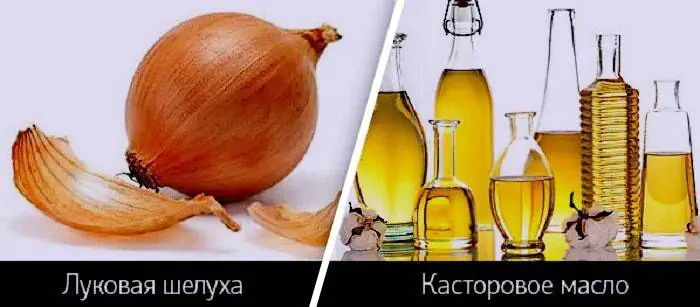
The intensity of itching is reduced by the following folk remedies:
- applesauce (apply to the scalp for 30 minutes 2-3 times a week);
- apple cider vinegar (dilute with water in the proportion of 2 tablespoons per liter of water, rub into the itching area before washing your hair, repeat the procedure for 5-6 days);
- onion peel (cook for 6 minutes, cool, use to rinse your hair after washing);
- mint (2 tablespoons, pour a glass of boiling water, cool, rub into the scalp, then rinse with clean water);
- chamomile with sage (mix them in equal proportions, steam 1 tablespoon of the mixture in a glass of boiling water, apply twenty-minute compresses to the back of the head, crown and other areas where itching is localized).
Video: what disease can cause an itchy head?
An itchy head can be a symptom of various diseases, a side effect of general disorders in the body, or a reaction to many external factors. To determine what exactly causes these sensations, you need to contact a specialist who will approach the problem comprehensively and comprehensively. However, it is always better to understand the mechanism of development of a particular disease in order to promote recovery and prevent relapse in the future. What causes itching, dandruff, seborrhea, what causes and catalyzes these processes, find out from the video below.



